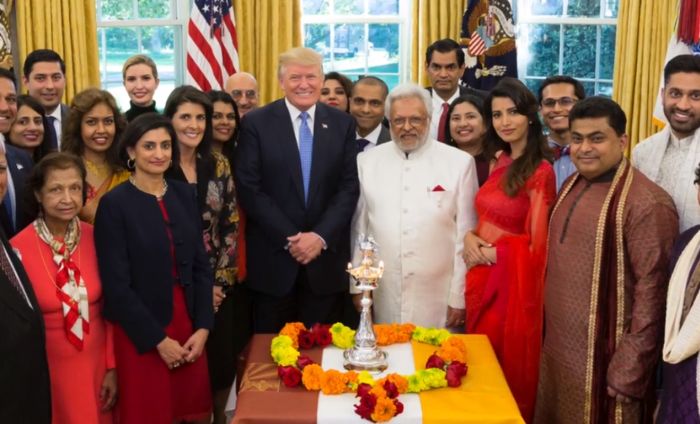
Diwali light for India-US relations: Trump lauds Modi & India, Indian-Americans
Is it Diwali time for India-US relations? Clearly, there is a lot to cheer about, and the reassuring Diwali message from US President Donald Trump should light up the spirit of his “friend,” India’s Prime Minister Narendra Modi.
In a gesture reaffirming his commitment to deepening India-US relations, the flamboyant American president, along with his daughter Ivanka, celebrated the Hindu festival of lights – Diwali – at the White House. The Diwali bash was attended by many prominent Indian-Americans in the Trump administration, including Nikki Haley (US Ambassador to the UN), Seema Verma (Administrator of Centers for Medicare and Medicaid Services) and Ajit Pai (Chairman of the US Federal Communications Commission). A video of the Diwali celebrations at White House was posted on the president’s Facebook page.
In hosting the Diwali celebrations at the White House, Mr Trump was continuing the tradition followed by his predecessors. But given the upswing in India-US relations during the first few months of his administration, despite initial apprehensions about policy volatility, there is a lot to cheer about how this vital relationship is shaping up.
Prime Minister Modi’s visit to the US in June and his first meeting with Trump had set an ambitious, multi-layered agenda for upscaling India-US relations across the spectrum.









